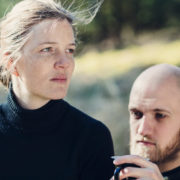I use hypnosis in treatment when the client agrees it will be helpful. It is part of the sessions, not the entire content. In order to learn hypnosis, I trained specifically with different instructors who teach different methods. In this way I developed my own style. And I don’t care what you call hypnosis: mediation, guided imagery, or hocus-pocus, it works. When you focus with hypnosis, you are quieting and stilling the mind with a gentleness that allows the solutions already within you to surface.

There is no such thing as a bad hypnosis session. You can’t “do it wrong.” It can’t “work” or “not work” because whatever you experience is valid. Your session becomes your internal laboratory for learning. Whatever comes up becomes your teacher. And each session is conducted with a purpose that both you, the client, and I, the hypnotist, agree upon.
Doing vs Being
Hypnosis, like meditation, cultivates awareness, but in a different way from what your active, thinking mind insists upon as problem solving. We are doing machines. Yet we carry within us the most powerful of all untapped resources: that of simply being. Learning and creating our own awareness of the difference between the two is incredibly powerful. How often do you find yourself evaluating how things are and wanting to change them immediately to something different? That’s the doing mind. It traps you into useless rumination. You sit and think and think without change; in fact you will sink further into depression or a low mood if you continue. This doing-thinking makes you feel as if you are problem solving, but you are not.
Either when in trance, or after one, sometimes clients may start to scold themselves and decide to think of a particular session as “good” or “bad”, or “working” or “not working.” Because we do not like to feel unpleasant emotions, attachment to feelings like this cause us to discard the experience or think of ourselves as failures. Often people may imagine that others are having this fantastic rate of success, and this just becomes one more reason to think they have failed. Self-comparisons are not useful or helpful in this case.
There is no such thing as failing at hypnosis if you are mindful that it is your experience, whatever it is.–Page Rutledge, LCSW, CHt
What Is The Point Of Learning The Difference?
The experience is valuable precisely because it offers you the opportunity to grow and learn without getting stuck in the self-perpetuating cycles and preoccupation with unhappiness, and how to “be happy.” There is a freedom in observing things as they are vs wanting them to be different from in that moment. Whether the experience feels pleasant, unpleasant or neutral, there is value in observing it without attempting to dismiss it. Observation will offer your mind a bigger container with less feelings of being trapped than instantly trying to change something or avoid it.
With stress, this can mean simply recognizing feelings of tension or restlessness instead of trying to force them away, or entering a mental harangue about why you are feeling stressed. It is the paradox often present with learning to create a less stressful life that you must first recognize the pain and look at it without trying to rid yourself of it immediately. This is what creates avoidance in our behaviors, often to the detriment of choices we might prefer to make.
You don’t have to dig frantically to find this, but you will need to practice to get better at it. If you want to experience hypnosis as part of living a less stressful life, contact me. It is about learning to be instead of always frantically trying to do— especially when the doing is in your head. Aren’t you more than ready to feel the strength that comes from within? That you already possess? Go ahead and call me or shoot me an email.
P.S. I’m now offering online scheduling capability (the blue button at bottom of home page) and the option of online counseling sessions. Go to my web site for more information, paying attention to the FAQ’s in this area.










